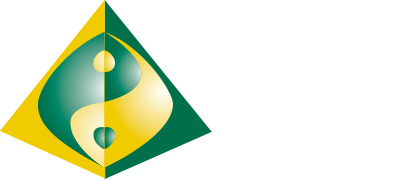
We’re a Qualified Intermediary for 1031 Exchanges
Defer 100% of your capital gains (and other) taxes when you sell your investment property.
Who we are
We formed The Private Exchange Group with the idea of fostering education, teamwork and strategic planning. We are investors ourselves and know how important a professional team is to you. A seasoned, professional team can make or break an investment.
Frequently Asked Questions
This information is provided by The Private Exchange Group, Inc. as a general guide to understanding 1031 exchanges only. The Private Exchange Group, Inc. does not give legal or tax advice. You should contact your attorney, accountant or other financial adviser for legal and/or tax advice.
- What is a 1031 Exchange?
When real estate investment is sold (not the house you live in), the taxpayer has to pay capital gains taxes. They also have to pay some of the depreciation back and any state capital gains taxes as well.
Capital gains tax is a percentage of the “profit” or gain made by selling the property. When you add in state gains taxes, this can be well over 20%.
The U.S. Tax code section §1031 allows the real estate investor to defer 100% of the capital gains taxes if:
- They buy another real estate investment (it can be more than one)
- The property(ies) they buy equal at least 100% of the net sale price
- They hire a Qualified Intermediary (Q.I.) to facilitate
- They identify the properties they wish to buy within 45 days of the closing date of the sale
- They close all purchases within 180 calendar days of the closing date of the sale
When an investor follows the process above, they are doing what is called a “1031 exchange” because they are using the section 1031 in the U.S. Tax Code to exchange one investment property for another.
- What is a Qualified Intermediary?
This is a company who is hired by a real estate investor to facilitate a 1031 exchange for them when they sell one or more of their investments. This person is also known as a Q.I., Accommodator, Exchange Service company or Exchange Facilitator.
Who can this company be?
A Qualified Intermediary can be any company who has the experience, knowledge, reputation and is not disqualified.The IRS defines a disqualified person as someone who has acted as an agent for the taxpayer at the time of the transaction. So, anyone who has acted as the taxpayer’s employee, attorney, accountant, investment banker or broker, real estate agent or broker within two years of the taxpayer’s sale of investment property can NOT handle their 1031 exchange as their Qualified Intermediary.
- What does a Qualified Intermediary do?
An Intermediary facilitates the 1031 process for the investor. Here are some of the duties:
- Educate the investor and their team
a.) about the 1031 exchange
b.) about the 1031 process - Coordinate with the parties on all transactions
- Sells the relinquished property and transfers it to the buyer
- Prepare 1031 exchange documents
a.) Exchange Agreement
b.) Assignment (for all transactions)
c.) Closing instructions - Send and receive wires
- Hold proceeds from closings
- Acquires the replacement property and transfers it to the taxpayer to complete the exchange
- Educate the investor and their team
- How does a Qualified Intermediary get paid?
Like most Intermediaries we at PEG charge a flat fee. This covers the sale and purchase transactions and all duties described above. We are paid at the closing of the beginning of the exchange.
- Why would someone consider a 1031?
There are multiple reasons. Here are a couple:
- Move from multiple properties to a single higher producing property
Example: I own 5 single family rentals all over the city and I’d rather have a single apartment building with more units, more cash flow and only one property to manage - Pass on a substantial income producing real estate portfolio to your heirs while keeping the income in tact.
Example: I am 80 years old and my portfolio is producing enough money to support my heirs in their current lifestyle. I’m going to exchange several properties to strengthen the portfolio for them and my tax adviser has shown me how to set up my heirs to get a step up in basis* so that the capital gains tax deferral can be preserved. *Please ask you tax adviser about this
- Move from multiple properties to a single higher producing property
We look forward to hearing from you…
Fill out the form below to get started. Or call (877) 567-1031 to speak with an expert.
Our Offices:
Corporate: 10101 W. Sample Rd., Coral Springs, FL 33065
Central/North Florida: 5401 S. Kirkman Rd., Suite 310, Orlando, FL 32819
Northeast: #520 Two Bala Plaza, Suite 300, Bala Cynwyd, PA 19004
